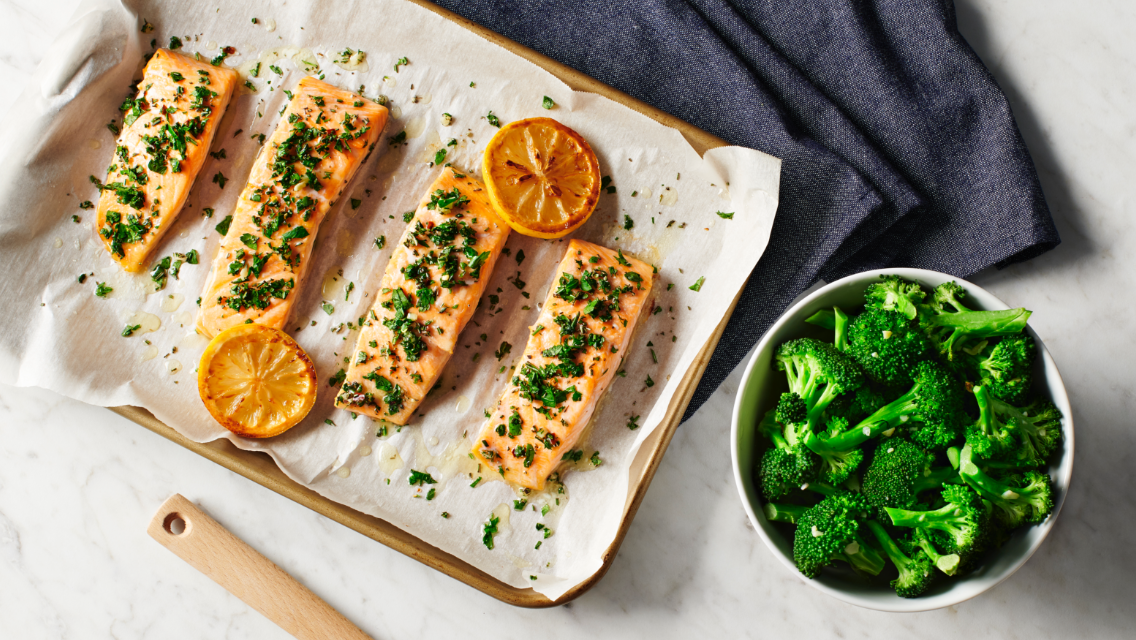Good health enables you to be strong — to have the mental, physical, and emotional ability to move and grow through life. And when the unexpected happens, to have the energy and resilience to withstand those challenges.
No matter the situation, optimal health is rooted in good habits in three primary categories: nutrition, fitness, and lifestyle. No single factor is more or less critical than the other, and they are all complexly intertwined. Your behaviors across them influence how you feel and function, as well as the health and strength of your immune system.
As our lives shift — based on circumstances in our families, in our work, in our communities, in our world — our routines change as well, sometimes in ways we can’t anticipate. What remains consistent, however, is the power that comes from prioritizing your health.
These are the areas we suggest focusing on and the steps we recommend for staying strong and healthy — right now and always.
Nutrition
Our perspective:
Eat a variety of whole, fresh foods. Aim for high-quality protein, healthy fats, fiber, and lots of vegetables at most, if not all, of your meals. Stay hydrated, and remember to supplement to fill nutrient gaps and support your unique body.
What you can do now:
- Stick to a nutrient-dense, toxin-free diet, including protein, vegetables, fruits, and whole grains, plus immune-supportive foods like garlic and ginger. Avoid foods that can weaken your immune system, such as sugar, refined grains, inflammatory vegetable oils, and processed foods.
- Get sufficient amounts of high-quality protein. Your body uses more protein than usual when it’s under stress to combat cortisol; it also supports your immune system.
- Consider taking additional vitamins and supplements to support your immunity, particularly our foundational five: a high-quality multivitamin, omega-3 fish oils, magnesium, vitamin D, and digestive enzymes. Vitamin C, vitamin K2, probiotics, and powdered greens have also been shown to support immune health.
Fitness
Our perspective:
Move your body in one way or another every single day. Choose activities you enjoy and that challenge you, while aiming to balance your cardio, strength, and recovery efforts.
What you can do now:
- Engage in at least 20 minutes of low- to moderate-intensity exercise every day to prime your immune system. This movement leads to the creation of more white blood cells, which combat bacteria and viruses.
- Include strength training in your routine, as muscle loss compromises your immune function. Strength training enables more oxygenated blood to push through your system, which helps your body remove waste, lower stress, and deliver nutrients.
- Prioritize recovery. Exercise is a form of stress on the body, when your efforts are causing muscle and tissue to break down. It’s during recovery — which includes good nutrition, sleep, and stress management — that your body rebuilds and grows stronger in response to your workouts.
Wondering if you’re feeling well enough to exercise? Here’s some advice.
Lifestyle
Our perspective:
Care for yourself — physically, mentally, and emotionally. Get plenty of rest and sleep, manage your stress, and support your digestive, brain, and hormonal health. Make time for recovery, self-care, and connecting with those you love.
What you can do now:
- Get a minimum of seven hours of sleep each night. This is when your body performs preventative maintenance, which strengthens the immune system. Short-changing sleep by even an hour or two has been shown to negatively affect immunity.
- Prioritize stress management. There isn’t a single metabolic or organ system that isn’t affected by chronic stress. Over time, physiological stress can contribute to a weakened immune system. Practice relaxation techniques such as deep breathing, meditation and mindfulness, or other forms of finding calm.
- Nurture your relationships. Research shows that social connections are essential for our mental health and well-being. Even in times of social distancing, there are ways to stay connected and close to friends and family.
These suggestions are applicable to most everyone, but health is highly individualized — listen to and do what’s best for your body. And know that health is also a journey that takes time, so focus on progress, not perfection.
If you’d like more ideas for ways to support your immune system, check out this guide.




